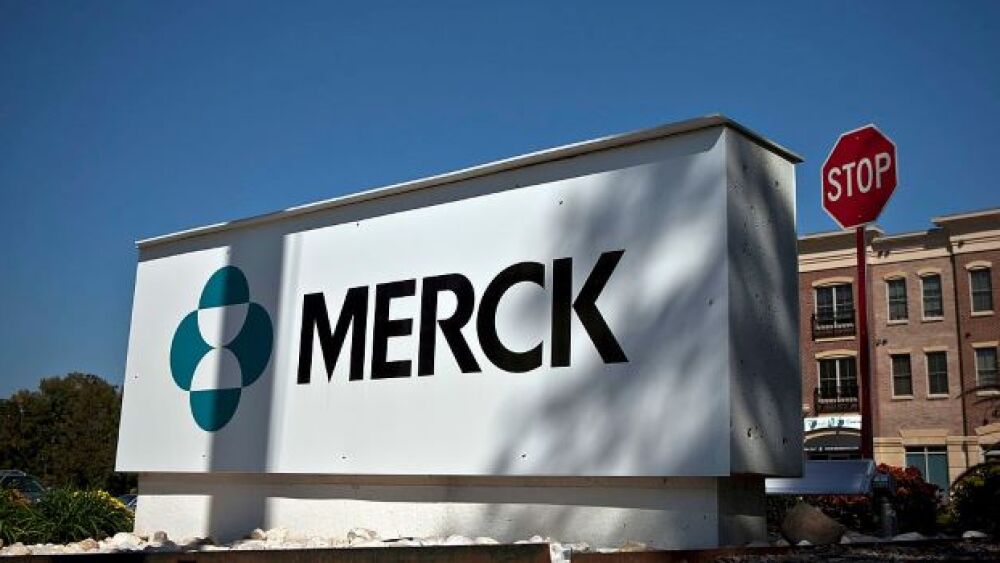Pharmaceutical giant Merck is exploring a possible purchase of biotech company Seagen, according to The Wall Street Journal.
Courtesy of Kena Betancur/Getty Images
Pharmaceutical giant Merck is exploring a possible purchase of biotech company Seagen, according to The Wall Street Journal.
No deal is imminent, sources told the publication, noting the challenge of regulatory approval. If Merck does not go through with the purchase, the companies could reach a marketing deal.
Merck has the financial wherewithal to buy Seagen, as its market value is $215 billion, while Seagen’s is $30 billion.
The two companies are currently collaborating on two projects. The first is an antibody-drug, ladiratuzumab vedotin, which is designed to target tumors expressing LIV-1, a zinc transporter protein. The other is for Tukysa (tucatinib) in combination with trastuzumab in patients with previously treated HER2-positive metastatic colorectal cancer (mCRC). The latter recently achieved positive topline results in a Phase II MOUNTAINEER clinical trial.
Merck also has an exclusive license to commercialize Tukysa in several regions outside the U.S. and Canada. Seagen, formerly Seattle Genetics, received $125 million upfront from Merck and could earn an additional $65 million for progress-dependent milestones.
When the development partnership was announced in 2020, Dr. Roger M. Perlmutter, then president, Merck Research Laboratories and since retired, spoke about the relationship.
“These two strategic collaborations will enable us to further diversify Merck’s broad oncology portfolio and pipeline, and to continue our efforts to extend and improve the lives of as many patients with cancer as possible,” Perlmutter said. “We look forward to working with the team at Seattle Genetics to advance the clinical program for ladiratuzumab vedotin, which has shown compelling signals of efficacy in early studies, and to bring Tukysa to even more patients with cancer around the world.”
Seagen has recently been through executive turmoil since CEO Clay Siegall resigned following domestic violence allegations. Roger Dansey, Seagen’s chief medical officer, is serving as interim CEO until a replacement for Siegall, a founder of the company, can be found.
Merck earned $48.7 billion in 2021 in total, and its drug, Keytruda, which is foundational in the treatment of metastatic non-small cell lung cancer, saw sales grow 20% to $17.2 billion in 2021.
Merck’s CEO Rob Davis took over the company following the retirement of Kenneth Frazier. Some analysts anticipate Davis wants to make the Seagen deal as Keytruda’s patent protection ends in 2028.
Most recently, the U.S. Food and Drug Administration, accepted for review a new supplemental Biologics License Application (sBLA) from Merck. The sBLS was for the approval of Keytruda for the adjuvant treatment of patients with stage IB (≥4 centimeters), II or IIIA non-small cell lung cancer (NSCLC) following complete surgical resection.
Besides Tukysa, Seagen currently has three other FDA-approved cancer treatments: Adcetris (brentuximab vedotin), Padcev (enfortumab vedotin-ejfv) and tivdak (tisotumab vedotin-tftv for injection 40mg). Seagen saw $1.6 billion in total sales last year.





